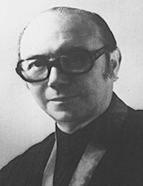

At the end of 1964, he completed his doctoral examinations in Historical Sciences at FL/UP, earning a mark of 18 out of 20. His dissertation, Santa Cruz de Coimbra na Cultura Portuguesa da Idade Média… [Santa Cruz de Coimbra in the Portuguese Culture of the Middle Ages…] (1963–1964), contributed to this achievement. Four years later, in 1968, he passed the competitive examinations for the rank of extraordinary professor with the thesis Algumas observações sobre a vida económica e social da cidade do Porto nas vésperas de Alcácer Quibir [Some Observations on the Economic and Social Life of the City of Porto on the Eve of Alcácer Quibir] (1967). The following year, after another public examination, he was awarded the chair. He became the first doctorate holder and the first full professor at his faculty. After obtaining his doctorate, he was appointed Rector’s Delegate and Interim Director, effectively acting as the faculty’s leader. In July 1970, he was officially named the first permanent Director of FL/UP, a position he held until April 1974.
During the political upheavals of April 1974, he was removed from both his directorship and professorship. During this "interregnum," he managed a family business and taught at the Universidade Livre [Free University] in Porto (1977–1986). From March 1979, he resumed his participation in academic examination panels at FL/UP, and by October of that year, he returned to full academic duties. He once again taught the Palaeography and Diplomatics course until his retirement in 1981, with the assistance of Armindo de Sousa (1942–1998), who later became his last doctoral student (completing his exams in 1988). In the final years of his career, he taught at Universidade Portucalense [Portucalense University] (1986–1989), where he served as the first Director of the Revista de Ciências Históricas .
He was also a member of the Academia Portuguesa de História [Portuguese Academy of History]. A graduate of Coimbra, profoundly influenced by the teachings of Damião Peres (1889–1976) and Manuel Lopes de Almeida, António Cruz’s intellectual focus was shaped primarily by the latter’s interest in the Restoration period. This was evident in his work editing historical sources (e.g. , Catálogo dos manuscritos da Restauração da Biblioteca da Universidade de Coimbra [Catalogue of Restoration Manuscripts from the Coimbra University Library], edited by António Cruz with a preface by Manuel Lopes de Almeida, 1936; Papéis da Restauração [Papers of the Restoration], vols. I–II, 1967–1969, among others). From Damião Peres, he inherited a polygraphic approach to chronology, tied to an encyclopaedic education rooted in the traditions of the Curso Superior de Letras [Higher Education Course of Arts and Humanities] and the early years of the Faculty of Arts and Humanities at the University of Lisbon. This intellectual lineage, seen in figures such as Manuel Maria de Oliveira Ramos (1862–1931), José Maria Queirós Veloso (1860–1952), and Agostinho José Fortes (1869–1940), inspired a generation of Portuguese historians, including Manuel Heleno (1894–1970), Salvador Dias Arnaut (1913–1995), Joaquim Veríssimo Serrão (b. 1925), and António Cruz himself. Indeed, Cruz’s work spans a wide historical range, from the dawn of the Portuguese kingdom to the early Liberal period.
This work is financed by national funds through FCT - Foundation for Science and Technology, I.P, in the scope of the projects UIDB/04311/2020 and UIDP/04311/2020.
